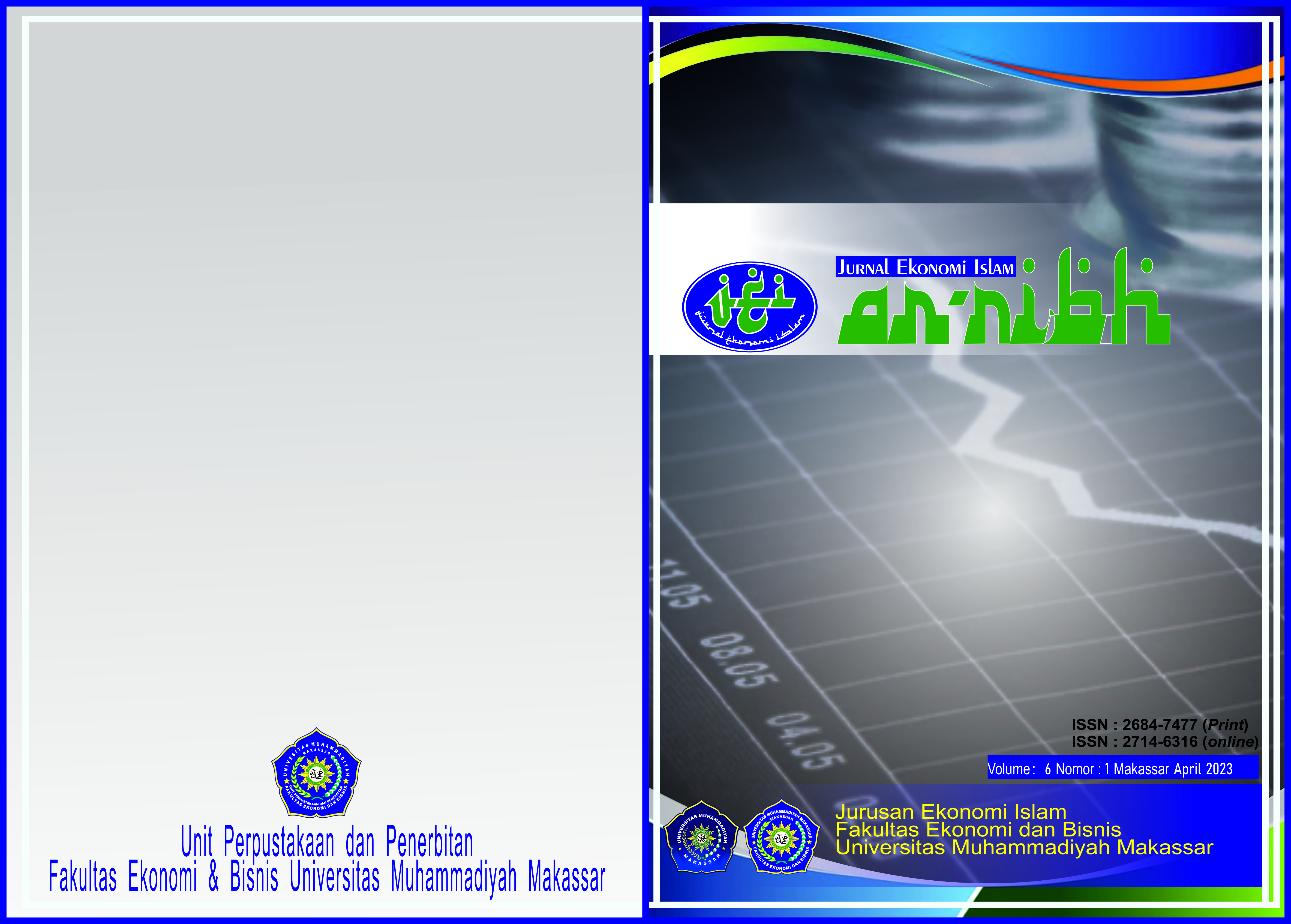The Green Economy Implementation To Umkm Cooking Oils Production At Majene (Syariah Economic Prespective)
DOI: https://doi.org/10.26618/jei.v6i1.10631
Abstract
This study aims to determine the application of Green Economy in cooking oil SMEs and analyze the obstacles to the implementation of Green Economy in cooking oil SMEs. Data collection was carried out by conducting in-depth interviews with objects or informants, in this case the village head of Tammeroddo, 4 groups of cooking oil MSME actors and the Karondongan hamlet community. as well as direct observation at the research location. The results of the research found that green economy applications by MSME actors in Karondongan Hamlet are divided into two aspects, namely economic aspects and environmental aspects. Both of these aspects have positive and negative impacts that need to be considered for appropriate solutions both from the cooking oil MSME actors themselves and from the Tammeroddo village government. The view of Islamic economics on the application of green economy in the economic aspect is considered to be in line, but in the environmental aspect it is considered not to comply with the principles of Islamic economics. Some of the obstacles experienced in implementing the green economy for cooking oil SMEs are: (1) the groeng oil SMEs in Karondongan hamlet do not understand in depth about the green economy concept, (2) the application of the green economy concept occurs without them realizing it, and their activities are too profitable. oriented. (3) There is no green economy training available for MSMEs in Karondongan Hamlet (4) There are no village regulations or regional government regulations governing green economy for MSMEs. For this reason, improvement is needed from the MSME actors themselves and the Tammeroddo Village governmentReferences
Brilliana, C. W., Baihaqi, I., & Persada, S. F. (2020). Praktik Green Supply Chain Management (GSCM) pada UKM. Jurnal Teknik ITS, 9(1). https://doi.org/10.12962/j23373539.v9i1.48112
Hari Kristianto, A. (2020). SUSTAINABLE DEVELOPMENT GOALS (SDGs) DALAM KONSEP GREEN ECONOMY UNTUK PERTUMBUHAN EKONOMI BERKUALITAS BERBASIS EKOLOGI. Business, Economics and Entrepreneurship, 2(1). https://doi.org/10.46229/b.e.e..v2i1.134
Kurniasih, W. (2021). Pengertian Literasi Digital: Komponen, Manfaat, dan Upaya Peningkatan. Gramedia.Com.
Lako, A. (2015). GREEN ECONOMY: Menghijaukan Ekonomi, Bisnis & Akuntansi. Jakarta : Erlangga, 110.
Putri, F. E. (2015). Pengembangan UMKM Di Desa Kepuhsari Wonogiri Melalui Kegiatan Assessment dan Bina Desa. Research Report-Humanities and Social Science.
Rindrayani, S. R. (2016). Strategi Pengembangan UMKM Melalui Pembelajaran Kewirausahaan Sebagai Penggerak Ekonomi Indonesia. Seminar Nasional Manajemen Ekonomi Akuntansi (SENMEA).
Soehardi, D. V. L. (2022). PERAN EKONOMI SYARIAH DALAM MEWUJUDKAN SUSTAINABLE DEVELOPMENT BERBASIS GREEN ECONOMY. Prosiding Seminar Sosial Politik, Bisnis, Akuntansi Dan Teknik, 4. https://doi.org/10.32897/sobat.2022.4.0.1908
Sugiyono. (2012). Metode Penelitian Kombinasi (Mixed Methods) (Sutopo (ed.); 3rd ed.). CV Alfabeta.
Sugiyono. (2018). Sugiyono Metode Penelitian Kuantitatif Kualitatif. Metode Penelitian Kuantitatif Kualitatif.
Uskara, M. A. (2021). UMKM adalah kunci: membangkitkan sektor UMKM untuk kemajuan ekonomi Indonesia.
And Social Science (IOSR-JHSS) Volume 21, Issue 5, Ver. 5 (May. 2016) PP 18-23.
















